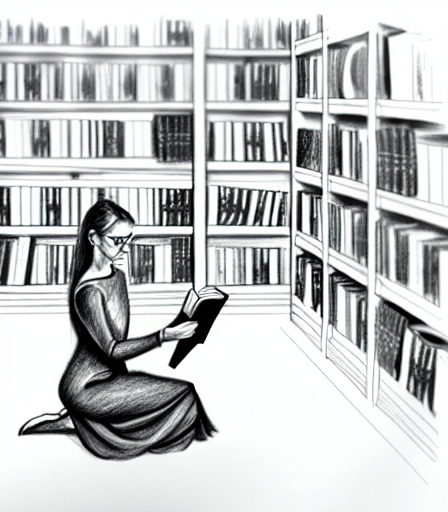How to fight against decision fatigue
Our decision-making power is limited. Each day, it quickly depletes as we make decisions. Learn more about decision fatigue and discover tips to avoid it

In this article, I want to discuss about decision fatigue and share some tips about how to fight against it.
Introduction
In order to fight against decision fatigue and keep our decision-making power, we need to develop strategies to make our decisions as effortless as possible. This means that we have to plan ahead and create an environment in which decisions either don't have to be made consciously (ideal), or in which those are as easy to make as possible. There are various ways to do this, and I'll explore some of those in this article.
What is decision fatigue?
Our decision-making power depletes throughout the day. We have a limited budget each day. As we make decisions, we deplete our decision-making energy.
The more decisions we make in a day, the harder it gets and the less we are able to make good calls. We also make less and less rational decisions because of the emotional fatigue that decision fatigue is associated with.
Every day, we make many unconscious decisions. Those don't require our attention and don't deplete our decision-making power. But there are also many choices that we need to make consciously, that require attention and energy. We have to make choices about what to wear, what to do, how to deal with all sorts of issues at home and at work, etc. As the world becomes more complex, the number of decisions that we need to make increases, and they require more and more energy.

Some decisions are more taxing than others. Sometimes we have to make decisions that will heavily impact our life, our family or others. Such decisions can drain our energy for days, weeks, or even entire months. Some can be avoided, but some just can't. That's why we have to develop ways to protect ourselves against decision fatigue.
Once our daily decision-making "budget" is depleted, we get into a mental state where our brains try to take shortcuts in order to alleviate the pain that making new decisions cause. We get fed up, and we feel worse and worse. Those shortcuts include making irrational decisions (e.g., purchasing something on a whim), making important decisions without pondering the pros and cons, or even tuning out, doing nothing, and pushing back decisions to another day (i.e., procrastinating).
Make decisions effortless
For mundane things, you want to make choices obvious or even unnecessary. To take a simple example, if you realize that you spend way too much time thinking about what to wear each morning, then consider making your wardrobe lighter or taking some time to prepare what you want to wear for the whole week. People like Steve Jobs, Barack Obama and others even go as far as having only a few different outfits to avoid wasting time choosing clothes. For groceries, you can ensure that your list is ready beforehand. Each time you think about something you need to get, just add it to a list on your smartphone. Similarly, prepare the list of meals for the week in advance. That way, when you get to the store, you won't have to think about what you need to buy, what to make for dinner, etc. And there are other benefits to approaching things like this. The decision-streamlining strategy works wonders for many things in life.
At work, you can block time slots in advance to be able to focus, enable the "Do Not Disturb" mode on the discussion channel and on your phone, close your mailbox, isolate yourself, etc. These changes will remove many interruptions, which means that you won't have to wonder about continuing what you are doing or switching to something else, thus saving some willpower. The same applies at home and with kids. You can change their environment to make choices more obvious and less demanding for you.

Automating tasks is a great way to make decisions effortless and even invisible. Automation hardcodes decisions, letting machines do the right thing for you. We often don't realize how many things can be automated without risks in our lives, and how much energy and time it can save us!
Routines, habits, and rituals are also fantastic to reduce the number of decisions you need to make. If your morning routine includes "hit the gym", then there's no need to think about whether you should go to the gym or not. You just hit the gym, as previously decided. Once your routines become habits, you don't have to decide anymore, you're on autopilot, and it all feels much easier.
Making decisions effortless requires preparation and careful design. Of course, it also requires energy, but it's usually a one-time effort. That's much better than the systematic efforts needed to make the same decisions over and over. It also does wonders for (healthy) productivity.
Remove noise from your life
In the context of decision fatigue, noise is anything that impairs our ability to make effortless decisions or forces us to make too many decisions. Noise comes in all shapes and forms in our lives...
A room filled with too many objects is noisy. When your environment is messy, you can easily waste time and energy just because of the "heaviness" in front of your eyes. You may constantly tell yourself "I should clean this up", "I need to do something about this mess" or remind yourself about other things to do. It grabs your attention, reduces your ability to focus and ultimately causes you to make tiny unimportant and impactless decisions all the time. For instance, when you decide to rearrange the room or clean up, then you need to make a ton of decisions such as "Should I throw this away?", "Should I move this here or there?", etc.
Similarly, a team with too many responsibilities is noisy. When you're at work and have too much work to do, your brain can go into an infinite loop, while you wonder about what to do next. When there are too many "high-priority" tasks, it's easy to procrastinate and waste a ton of time deciding what should be tackled first. Noise in that context is really harmful for productivity.
A life without proper work-life balance is also noisy. When you're not at work but constantly thinking about work-related problems, your brain wastes a ton of energy wondering whether you should do X or Y, how to fix the problem, etc. This may push you to make (unhealthy) choices between focusing on leisure/family or work. This definitely leads to burnout.
Again, noise comes in all shapes and forms. The thing is that if the noise is not there in the first place, then it can't consume your decision-making power. So, you need to try and eliminate as much noise as you can from your life. It doesn't mean going "Marie Kondo style" with everything, but carefully designing a life in which there is as little noise as necessary. Not too little, and not too much. Unfortunately, this requires making choices and thus using mental energy. But again, these are one-time decisions that will remove countless other decisions from your life, which feels like a good trade-off. In this sense, minimalism is awesome to save decision-making power.
Want to learn more? Check out my other articles on this topic:


Ask for help
When you have too many decisions or complicated ones to take, it can quickly get exhausting. You don't always have to take those alone. Sometimes, asking for help is the best path forward. More brainpower means more creativity and more collective intelligence to find the best possible answers. This can save you a lot of time and energy.
Delegate decisions and tasks
Another way to reduce decision fatigue is to delegate to others and trust them to make good calls and do the right thing. Delegating requires trust, which has the nice property of increasing involvement, ownership and team spirit. Trust is a complex topic, but it's a key ingredient of success.
Avoid second-guessing everything
When we lack confidence, we tend to revisit past decisions again and again. This means that those decisions end up costing us a lot more than they should. Once you realize that the past is the past and that it cannot be changed, it becomes easier to let go, and focus on the present moment. Of course, important choices need to be made carefully. Ideally, early in the morning, when you still have a lot of decision-making power. Once a decision has been made though, and assuming that it was made after carefully pondering the pros and cons, it's important to avoid second-guessing.
Decisions are very often time-bound. There's a finite amount of time we can wonder about something before choosing. When we do make a careful choice, we make it with the information available to us at the time. We never have perfect information at our disposal. If we revisit decisions later on, chances are that we will indeed have more information. But it doesn't mean that we didn't make the right call before, with the information that we had. It's much better to adjust the course rather than revisit past decisions.
So, whatever you need to decide about, make the best choice you can, based on the information you have. Don't waste needless energy wondering whether you made the right decision or not. Time will tell you, and you'll course-correct if you need to.
Learn to say no
We all have limited time and resources, and we have to protect those and ourselves. Sometimes, the best decision you can make is simply to say no. Saying no is mighty powerful, and is bound to become even more so as the world becomes more and more demanding. Of course, saying no is a decision of its own, but it's one you should be able to take more easily, based on your gut feeling.
Get some rest
Don't forget to rest. As I've mentioned, our decision-making power depletes throughout the day, as we make decisions. Taking breaks helps recharge our batteries, including our mental energy and thus our decision-making power. The less tired we are, the better prepared we are to make good decisions.
Conclusion
Our decision-making power is limited, and it depletes faster than we think. Decision fatigue is real, and we need to avoid emptying our batteries. If we don't, we risk making bad decisions that we might quickly regret.
Simple strategies and careful design can help streamline our decisions and make our lives easier and less stressful.
References
- https://www.ama-assn.org/delivering-care/public-health/what-doctors-wish-patients-knew-about-decision-fatigue
- https://en.wikipedia.org/wiki/Decision_fatigue
- https://www.medicalnewstoday.com/articles/decision-fatigue
About Sébastien
I'm Sébastien Dubois, and I'm on a mission to help knowledge workers escape information overload. After 20+ years in IT and seeing too many brilliant minds drowning in digital chaos, I've decided to help people build systems that actually work. Through the Knowii Community, my courses, products & services and my Website, I share practical and battle-tested systems. You can follow me on X 🐦 and on BlueSky 🦋.
I am an author, founder, and coach. I write books and articles about Knowledge Work, Personal Knowledge Management, Note-taking, Lifelong Learning, Personal Organization, and Zen Productivity. I also craft lovely digital products.
If you want to follow my work, then become a member and join our community.
Ready to get to the next level?
If you're tired of information overwhelm and ready to build a reliable knowledge system:
- 🎯 Join Knowii and get access to my complete knowledge transformation system
- 📚 Take the Course and Master Knowledge Management
- 🚀 Start with a Rock-solid System: the Obsidian Starter Kit
- 🦉 Get Personal Coaching: Work with me 1-on-1
- 🛒 Check out my other products and services. These will give you a rock-solid starting point for your note-taking and Knowledge Management efforts






